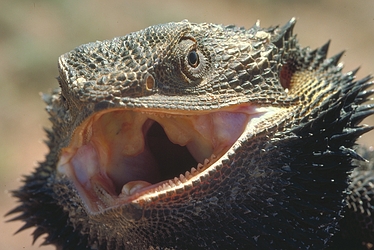The Ultimate Guide to Understanding Average Bearded Dragon Weight
Introduction
Bearded dragons are a popular pet among reptile enthusiasts. These docile creatures are easy to care for and are great for beginners. One of the most important things to know about bearded dragons is their weight. Knowing the average bearded dragon weight is crucial in determining if your pet is healthy and if they are eating and growing properly. In this guide, we will cover everything you need to know about average bearded dragon weight and why it matters.
What is the Average Bearded Dragon Weight?
The average bearded dragon weight varies depending on age and sex. Adult male bearded dragons typically weigh between 350-550 grams, while adult females usually weigh between 250-400 grams. Juvenile bearded dragons usually weigh between 60-180 grams. However, it’s important to note that every bearded dragon is unique and may weigh more or less than the average weight range.

Factors that Affect Bearded Dragon Weight
There are several factors that can affect the weight of your bearded dragon. It’s essential to be aware of these factors to ensure your pet stays healthy and is growing properly.
Age
The age of your bearded dragon is a crucial factor that affects its weight. As bearded dragons get older, their weight usually increases. Juvenile bearded dragons typically weigh less than adult bearded dragons. As a general rule, bearded dragons should gain weight each month until they reach their average adult weight.
Sex
Males and females have different average weights, with males typically weighing more than females. Female bearded dragons have smaller heads and slimmer bodies compared to males. Male bearded dragons also have larger, darker-colored beards.
Diet
Diet is one of the most important factors that affect the weight of bearded dragons. Bearded dragons are omnivorous, which means they eat both plants and insects. A balanced diet is necessary for bearded dragons to maintain a healthy weight. Feeding your bearded dragon a high-quality diet that consists of a variety of insects and vegetables is essential to help them maintain a healthy weight.
Environmental Conditions
The environment in which your bearded dragon lives can also affect its weight. The temperature and humidity levels in the tank can impact the appetite and digestion of your bearded dragon. Proper lighting is also crucial for bearded dragons to maintain their health and weight. Be sure to provide a warm basking spot and a cooler area in the tank for your bearded dragon to regulate its body temperature.
How to Weigh Your Bearded Dragon
Weighing your bearded dragon is simple and can be done at home. Here’s a step-by-step guide on how to weigh your bearded dragon:
- Step 1: Place a kitchen scale on a flat surface that can support the weight of your bearded dragon.
- Step 2: Turn on the scale and set it to zero.
- Step 3: Place a small container, such as a plastic bowl, on the scale.
- Step 4: Place your bearded dragon in the container.
- Step 5: Record the weight of the bearded dragon.

When to See a Vet
If you notice that your bearded dragon is losing weight or has an abnormal weight that doesn’t fall within the average weight range, it’s essential to take your pet to a veterinarian. Rapid weight loss or gain can be an indicator of serious health problems. A veterinarian can help determine the cause of the weight loss or gain and provide a treatment plan.
Conclusion
In conclusion, knowing the average bearded dragon weight is essential for any bearded dragon owner. A healthy weight is an indication that your pet is growing properly and is healthy. By keeping these factors in mind, you can ensure that your bearded dragon maintains a healthy weight, and if you notice any abnormal weight changes, take your pet to the veterinarian right away.
